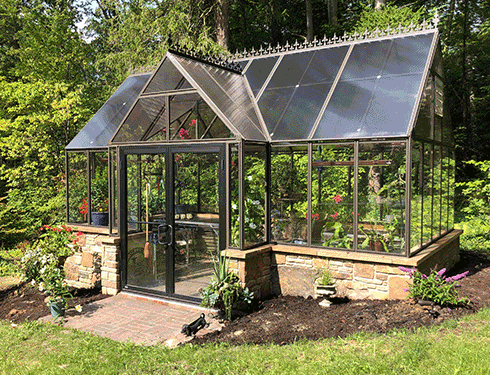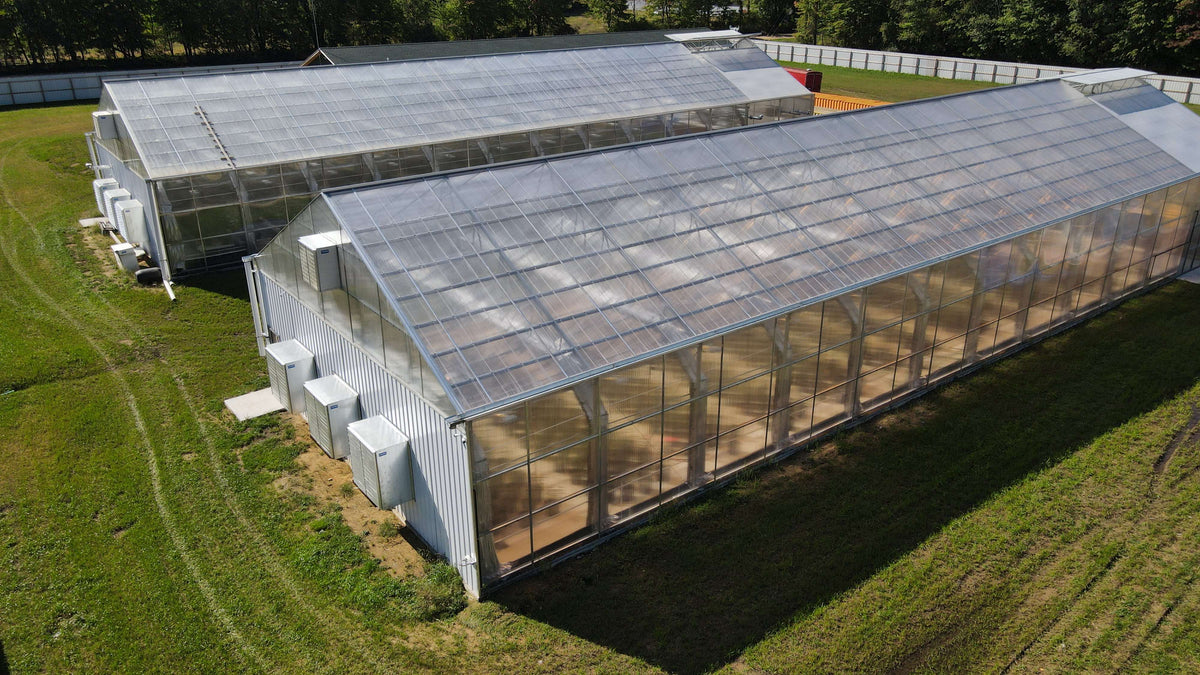Greenhouse Farming: Making Best Use Of Plant Yields and Sustainability
With managed environments and lowered water usage, greenhouse farming offers the ideal option for year-round production of fresh produce. Discover the advantages of greenhouse farming and begin gaining the advantages today!
Benefits of Greenhouse Farming
Are you wondering what makes greenhouse farming so advantageous? One of the major advantages of greenhouse farming is the capability to control the atmosphere in which plants are expanded.
One more advantage of greenhouse farming is the reduction in water use. By using water a lot more efficiently, greenhouse farming assists to save this valuable source.
In addition, greenhouse farming enables for far better parasite and disease administration. With the regulated environment, it is less complicated to regulate the spread and prevent of diseases and bugs. This minimizes the need for hazardous pesticides, making greenhouse-grown plants safer and extra eco pleasant.
Furthermore, greenhouse farming gives security versus extreme weather events. Plants expanded in greenhouses are secured from heavy rain, strong winds, and hailstorms, which can damage or damage exterior plants. Monarch Greenhouse Utah. This security guarantees a more stable and trusted crop return, also throughout uncertain climate condition

Maximizing Plant Returns With Managed Settings
To make best use of plant returns in greenhouse farming, you can accomplish optimum results by regulating the setting. By carefully taking care of aspects such as temperature, light, moisture, and carbon dioxide degrees, you can develop the perfect conditions for your plants to prosper. Among the crucial benefits of greenhouse farming is the ability to manage these environmental factors, enabling you to customize them to the particular requirements of each plant. You can readjust the temperature to promote faster growth during the day and reduced it slightly at night to imitate all-natural fluctuations. You can manage moisture degrees to protect against diseases and ensure appropriate transpiration. By giving the right quantity and quality of light, you can expand the growing season and boost returns. Furthermore, by regulating carbon dioxide degrees, you can boost photosynthesis and urge vigorous development. By applying these managed environments, you can make best use of plant yields and achieve constant, top quality produce throughout the year.
Encouraging Sustainability Via Greenhouse Farming
Optimize sustainability in greenhouse farming by implementing efficient resource administration strategies. One vital aspect of promoting sustainability is the administration of water use. By implementing systems such as drip irrigation and recirculation, you can substantially reduce water wastefulness and guarantee that every decrease matters. Furthermore, utilizing natural and eco-friendly materials for pest control and fertilization can help lessen ecological influence. Integrated Insect Administration (IPM) techniques, as an example, entail the usage of beneficial insects to control insects, reducing the requirement for unsafe chemicals. Moreover, energy consumption can be reduced by utilizing renewable resource sources, such as photovoltaic panels, to power greenhouse procedures. This not just reduces dependence on fossil fuels but likewise lowers greenhouse gas discharges. Appropriate waste management is one more important element in promoting sustainability. Applying recycling and composting systems can reduce the amount of waste sent out to garbage dumps while likewise providing nutrient-rich compost for plant development. Finally, including lasting methods in greenhouse design, such as utilizing energy-efficient materials and maximizing all-natural lighting, can better enhance sustainability. By taking on these resource management techniques, you can add to a more sustainable future in greenhouse farming.
Decreasing Water Use in Greenhouse Farming
By executing efficient water administration methods, you can significantly decrease water use in greenhouse farming. Water is an essential resource in farming, and preserving it not only profits the setting however likewise assists to optimize plant yields and earnings. One efficient method to lower water use is through using drip watering systems. These systems deliver water directly to the plant's roots, lessening evaporation and making certain that every drop is utilized efficiently. Additionally, surveillance and regulating the moisture degrees inside the greenhouse can stop unnecessary water loss. By utilizing sensors and automated systems, you can readjust the air flow and watering appropriately, optimizing water usage based on the particular demands of your crops. Another technique is to catch and reuse rainwater. Collecting rainwater from the greenhouse roofing system and storing it in containers enables you to supplement your irrigation needs without relying only on freshwater resources. Carrying out mulching methods can assist keep soil dampness, minimizing the frequency of watering. Mulch function as an obstacle, protecting against water evaporation and maintaining the soil cool and moist. By adopting these water-saving practices, you can lessen water waste, conserve sources, and create a much more lasting future for greenhouse farming.
Year-Round Production of Fresh Produce in Greenhouses
Greenhouses supply a regulated environment that enables you to grow plants no matter of the outside weather problems. Greenhouses can be equipped with home heating and cooling down systems to keep optimal temperature levels for various plants. By executing these strategies, you can make best use of the efficiency of your greenhouse and enjoy a constant supply of fresh create all year long.

Verdict
In conclusion, greenhouse farming gives many advantages for making best use of plant yields and advertising sustainability. Furthermore, greenhouse farming allows for lowered water usage, making it an environmentally friendly selection.
One of the significant benefits of greenhouse farming is the capability to control the atmosphere in which plants are grown.To make the most of plant yields in greenhouse farming, you can achieve optimum outcomes by controlling the setting. One of the key advantages of greenhouse farming is the Monarch Greenhouse Sheds Utah capacity to regulate these environmental variables, allowing you to tailor them to the details requirements of each plant.By executing effective water administration techniques, you can substantially decrease water use in greenhouse farming.In conclusion, greenhouse farming provides numerous advantages for maximizing crop yields and advertising sustainability.